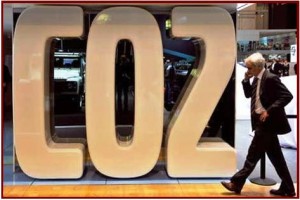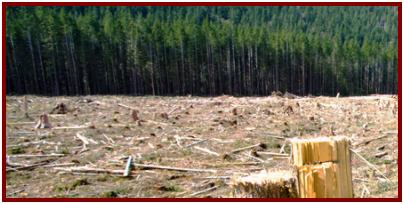 Virtually all of the studies endorsing biofuels as climate-friendly alternatives to petroleum fuels are flawed and need to be redone, according to University of Michigan researchers who reviewed more than 100 papers published over two decades. Some funding for the study was provided by the American Petroleum Institute.
Virtually all of the studies endorsing biofuels as climate-friendly alternatives to petroleum fuels are flawed and need to be redone, according to University of Michigan researchers who reviewed more than 100 papers published over two decades. Some funding for the study was provided by the American Petroleum Institute.
The study, based on U.S. Department of Agriculture crop-production data, claims that during the period when U.S. biofuel production rapidly grew, the increased carbon dioxide uptake by the crops only offset 37% of the CO2 emissions due to subsequent biofuel combustion.
The researchers claim that rising biofuel use is associated with a net increase—not a decrease, in the carbon dioxide emissions that cause global warming. The findings were published online 25 August in the journal Climatic Change. (Carbon balance effects of U.S. biofuel production and use.) The use of biofuels to displace petroleum has expanded over the last decade in response to policies, such as the U.S. Renewable Fuel Standard, that promote their use for transportation. Consumption of liquid biofuels—mainly corn ethanol and biodiesel—has grown in the United States from 4.2 billion gallons in 2005 to 14.6 billion gallons in 2013.
“This is the first study to carefully examine the carbon on farmland when biofuels are grown, instead of just making assumptions about it,” said professor John DeCicco and co-authors at the U-M Energy Institute. (Danielle Yuqiao Liu, Joonghyeok Heo, Rashmi Krishnan, Angelika Kurthen and Louise Wang.) “When you look at what’s actually happening on the land, you find that not enough carbon is being removed from the atmosphere to balance what’s coming out of the tailpipe.”
The Global Warming Debate
Not so fast or so easy counters MichBio, an industry trade association in Michigan.
“Professor DeCicco’s modeling gives fossil fuels a credit for carbon storage from existing forests and agriculture,” said the Trade association.
“This inclusion is wholly inappropriate in a lifecycle model because there is no economic relationship between the fossil fuel industry and agriculture or forestry. Farmers do not plant crops to soak up carbon emissions from oil use; nor do forest owners preserve forests to store carbon emissions from oil use. DeCicco inappropriately argues that all carbon in the atmosphere is the same, so biofuels are the same as or worse than petroleum fuels. But biofuels provide a direct economic incentive to farmers and foresters to manage land and recycle carbon. The oil industry creates no such incentive,” claims MichBio.
The crux of environmental justification is based on the assumption that biofuels, as renewable alternatives to fossil fuels, are inherently carbon neutral because the carbon dioxide released when they are burned was derived from CO2 that the growing corn or soybean plants pulled from the atmosphere through photosynthesis.
“When it comes to the emissions that cause global warming, it turns out that biofuels are worse than gasoline,” DeCicco concludes. “So the underpinnings of policies used to promote biofuels for reasons of climate have now been proven to be scientifically incorrect.”
Real Consequences Here
Unlike most petty academic arguments that are as voracious as they are insignificant, the bio fuels debate is crucial to public policy and the future of the planet.
“It’s unfortunate when scientists conduct research predicated on assumptions that lead to biased results, rather than conducting a truly independent analysis,” said Stephen Rapundalo, PhD, President and CEO, MichBio. “Moreover, the Petroleum Institute’s direct funding of the research calls into question any impartiality on the part of the research team and hence the study’s conclusions.”


